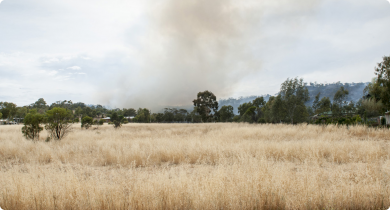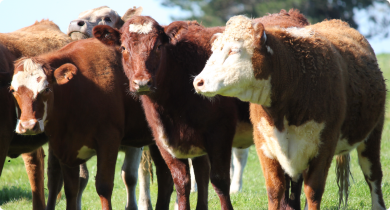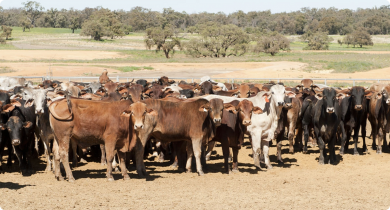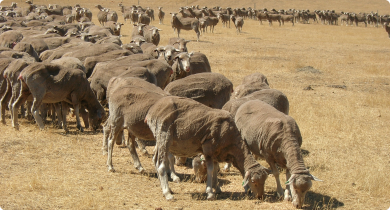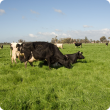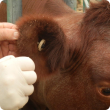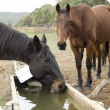Livestock & animals
The Department of Primary Industries and Regional Development supply chain support, research and development and rigorous biosecurity systems underpin the economic success of Western Australia’s livestock industries. In 2011/12, the WA livestock industries contributed 26% of the state’s agriculture, fisheries and forestry production, worth approximately $2 billion at the farm gate.
WA is a world leader in live exports, super fine wool production and dryland sheep and grain systems. Both cattle and sheep systems are focused on export markets to Asia and the Middle East. WA also has innovative, world-class integrated dairy and pork industries meeting local and South East Asian demand for safe, fresh milk and pork. The WA poultry industry is growing strongly as a result of increasing domestic consumption.
Global demand for high-quality, safe animal protein and products produced according to high animal welfare standards will continue to rise in coming years. Increasingly DAFWA will partner with industry -- locally, nationally and internationally -- in transformational business projects to capitalise on this demand.
Filter by search
Filter by topic
- (-) Remove Livestock biosecurity filter Livestock biosecurity
- Biosecurity (120) Apply Biosecurity filter
- (-) Remove Biosecurity & quarantine filter Biosecurity & quarantine
- Pests, weeds & diseases (96) Apply Pests, weeds & diseases filter
- Diseases (90) Apply Diseases filter
- Livestock health & diseases (89) Apply Livestock health & diseases filter
- Livestock species (83) Apply Livestock species filter
- Livestock disease surveillance (82) Apply Livestock disease surveillance filter
- Livestock management (50) Apply Livestock management filter
- Sheep (35) Apply Sheep filter
- Beef cattle (26) Apply Beef cattle filter
- Emergency animal disease preparedness (25) Apply Emergency animal disease preparedness filter
- Dairy cattle (21) Apply Dairy cattle filter
- Livestock movement & identification (18) Apply Livestock movement & identification filter
- Management & reproduction (17) Apply Management & reproduction filter
- Poultry & birds (15) Apply Poultry & birds filter
- Pigs (14) Apply Pigs filter
- Goats (11) Apply Goats filter
- Horses (10) Apply Horses filter
- Feeding & nutrition (10) Apply Feeding & nutrition filter
- Chemicals (10) Apply Chemicals filter
- Control methods (10) Apply Control methods filter
- Stockfeed (7) Apply Stockfeed filter
- Veterinary chemicals (6) Apply Veterinary chemicals filter
- Residues in livestock (5) Apply Residues in livestock filter
- Preventing residues (5) Apply Preventing residues filter
- Climate, land & water (4) Apply Climate, land & water filter
- Wildlife biosecurity (4) Apply Wildlife biosecurity filter
- Food, export & investment (4) Apply Food, export & investment filter
- Quarantine (3) Apply Quarantine filter
- Importing to Western Australia (3) Apply Importing to Western Australia filter
- Emergency response (3) Apply Emergency response filter
- Importing animals (3) Apply Importing animals filter
- Biosecurity governance (3) Apply Biosecurity governance filter
- Industry Funding Schemes (2) Apply Industry Funding Schemes filter
- Land use (2) Apply Land use filter
- Camelids (2) Apply Camelids filter
- Bees (2) Apply Bees filter
- Investment attraction (1) Apply Investment attraction filter
- Land use planning (1) Apply Land use planning filter
- Livestock research & development (1) Apply Livestock research & development filter
- Pest animals (1) Apply Pest animals filter
- Invasive species (1) Apply Invasive species filter
- Export services (1) Apply Export services filter
- Agribusiness Food & Trade (1) Apply Agribusiness Food & Trade filter
- Animal welfare (1) Apply Animal welfare filter
- Biosecurity and Agriculture Management Act (1) Apply Biosecurity and Agriculture Management Act filter
- Climate & weather (1) Apply Climate & weather filter
- Fire (1) Apply Fire filter

